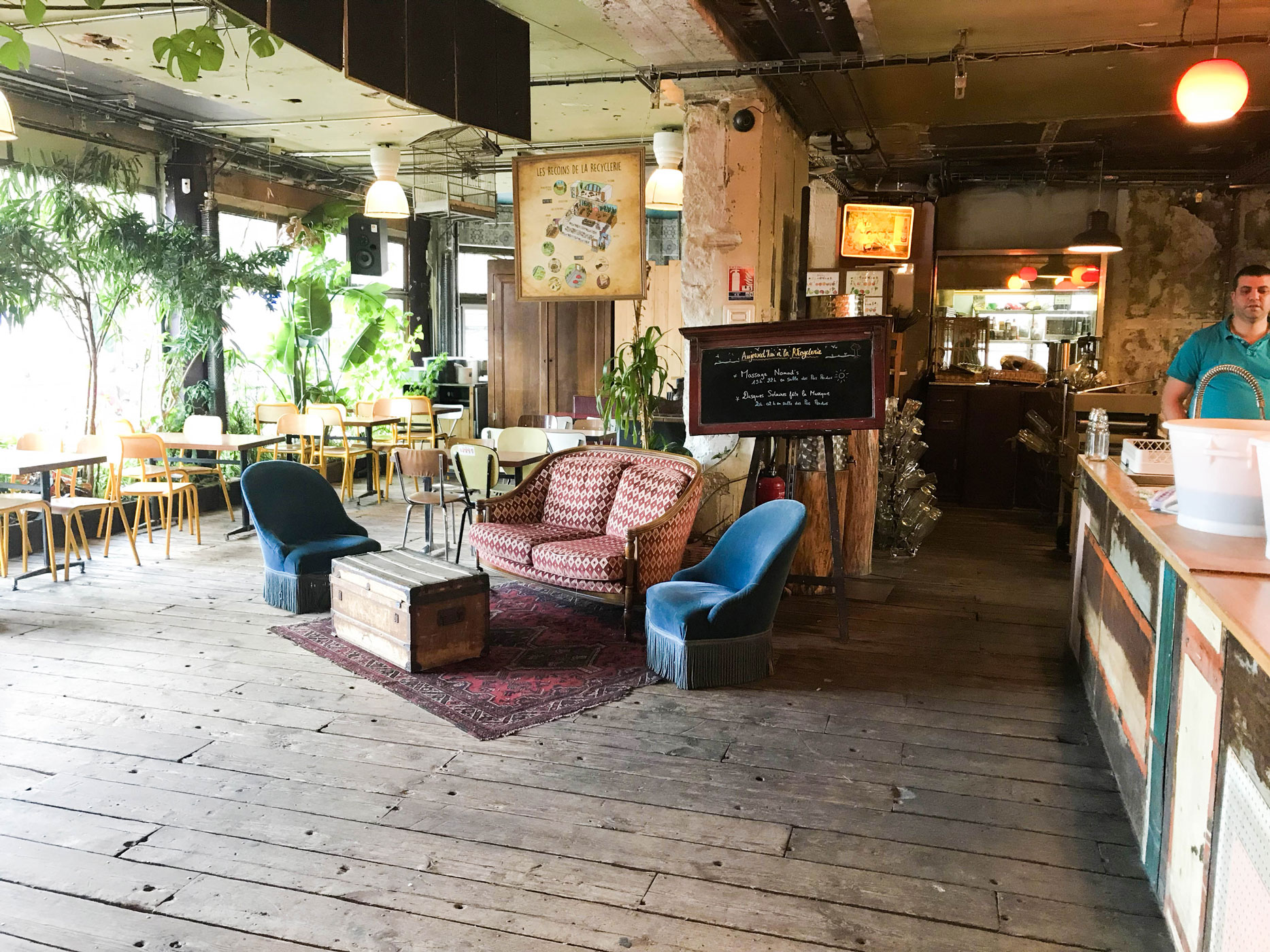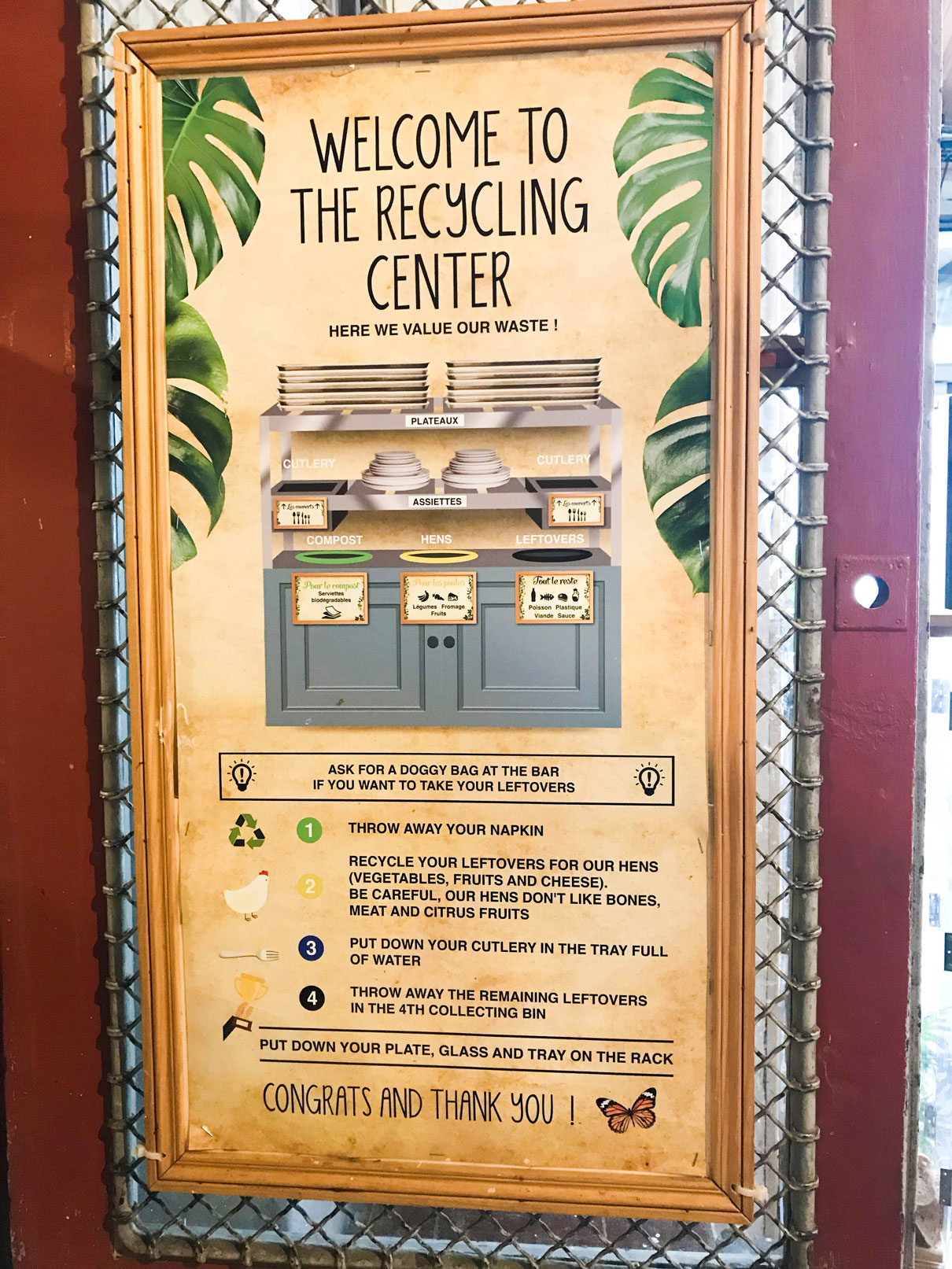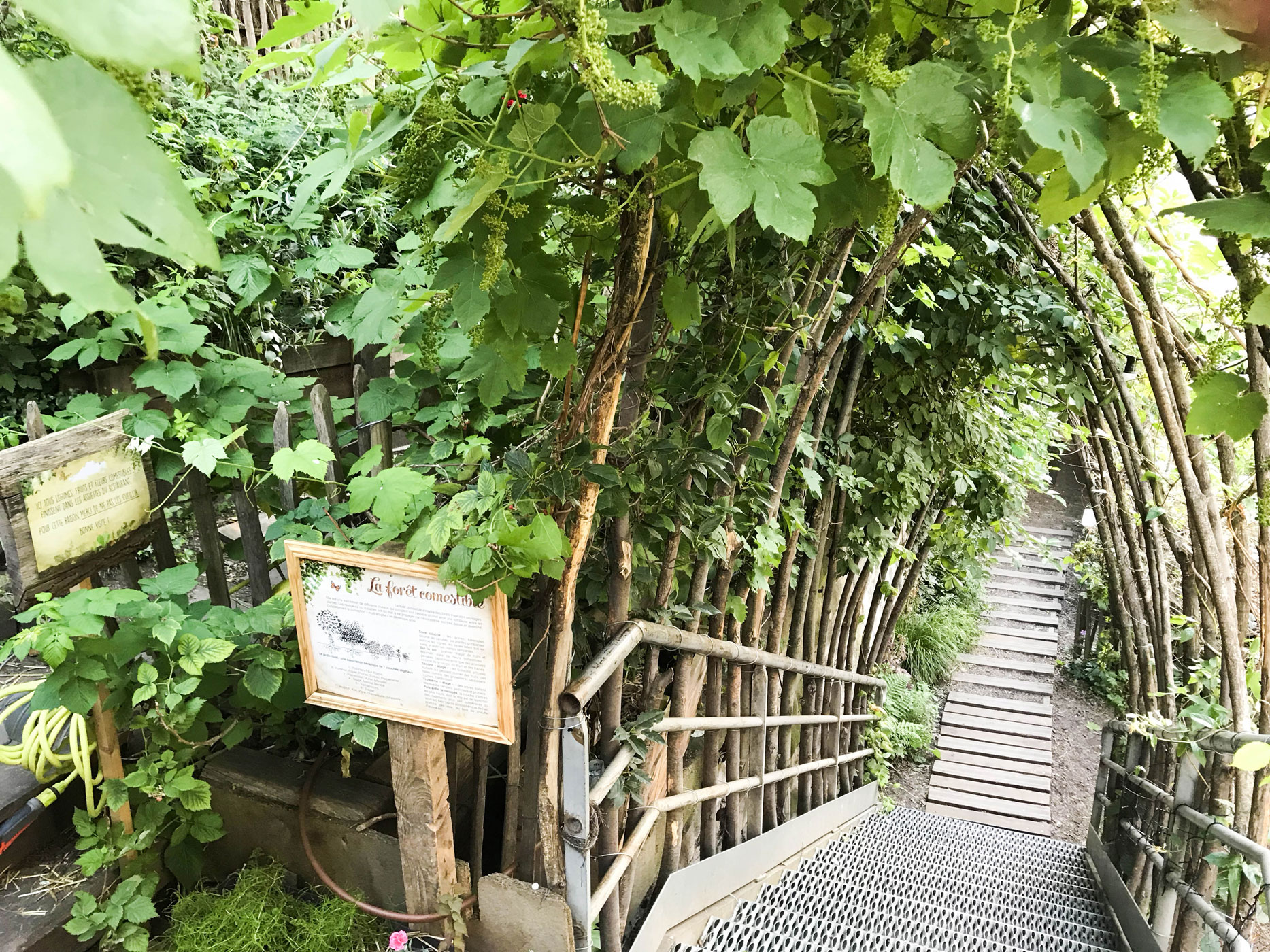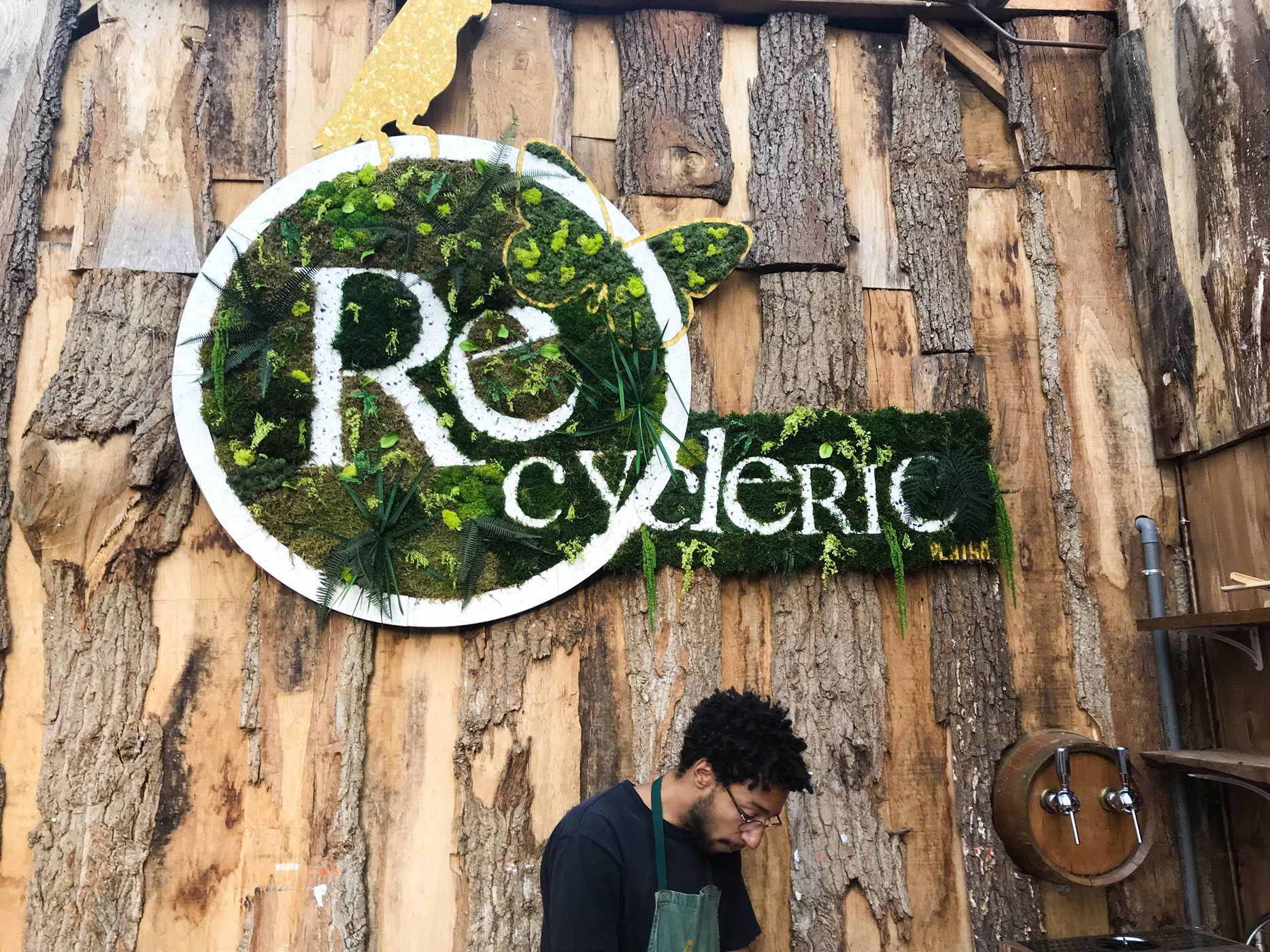Reduce, Reuse, and Remember to Hit Le REcyclery When You’re in Paris

story and photos by Torrey Douglass
We live in an age where the profit potential of disposability is at war with the sustainability movement, encouraging us to close loops, reduce waste, and upcycle like the lovechild of Martha Stewart and Bill McKibben. Though I fail often, I make an effort to put my weight behind Team Lovechild—composting, recycling, and wringing the usefulness out of every item before it is carted off to the landfill. Imagining second lives for objects others view as depleted is a creative challenge that tickles my fancy, which might be why I like flea markets so much.
It’s also why it was nothing short of delightful to find myself in the serpentine warren of lanes and alleys that comprise the Paris Flea Market on a recent trip to France. Art, furniture, clothes, albums, postcards, toys, dishes, lamps—you name it, they have it, in any style and from any era. I passed a plate of old keys that looked like they were dropped out of a Dickens novel, a case of chunky, hand-blown glass bottles with the iridescent sheen that indicates they’ve spent some time buried in soil, and a 1940s poster promoting a San Francisco fundraiser for the French Resistance. Items fell anywhere on the spectrum between impeccably preserved, high end antiques to broken down junk that belongs on the curb with a hand-written “FREE” sign hung on it. It was a dizzying variety and volume of stuff, one you could spend days exploring—it is, after all, the largest flea market in the world. For set designers, antique enthusiasts, and those of us interested in squeezing just a little more purpose out of the surfeit of consumer products, the Paris Flea Market is a dream.
Rethinking wasteful habits and extending the life of objects is a theme you’ll also find at Le REcyclery, a restaurant and bar built above the tracks in an abandoned train station just a few blocks from the Paris Flea Market. Though I never met the owner, my bet is s/he is also on Team Lovechild. The space is furnished with a mixed collection of (what looks like) flea market cast-offs and a plethora of potted plants tucked into corners, sitting on surfaces, and climbing the walls. On one side is the entrance where people come in off the busy street, while the opposite side features a two-story high wall of glass panes looking out over the railroad tracks. Every day offers a different menu with three choices—a meat dish, a vegetarian dish, and something for the kids. Customers can sidle up to the bar and place their order with a snazzy staff member that looks like they get paid by the tattoo, get a buzzer, grab some vintage silverware, and find a table to wait.
We opted for the mezzanine, up a winding metal spiral staircase that required ducking under various pipes. From there we could enjoy the view of the tables below, an interior wall garden bursting with greenery, and the eclectic oddities sprinkled around the place—antique typewriters, used books, old clocks, and vintage luggage. A fix-it person keeps hours there to breathe new life into defunct appliances brought in by customers—you can even borrow tools if you want to make the repairs yourself. The space also hosts all sorts of community events and classes to bring folks together and spread their motto of “Réduire, Réutiliser, Recycler” (“Reduce, Reuse, Recycle”). Options on the calendar might include films, massage, crafts, and gardening.
The food arrived, and the duck I ordered was delicious, succulent and well-flavored, accompanied by roasted potatoes. The burger my daughter ordered gave her pause as they used an alternative flour and the bun was the color of charcoal (my bet is a grown-up palate would have enjoyed it, and she did like the fries). Reviewers rave about the coffee, and the bar has beers on tap as well as fresh juices. Breakfast, lunch, tapas, and dinner are served during the week, with brunch on the weekends. It’s a good thing the restaurant is large, because it’s clearly a popular spot with travelers and locals alike.
After the meal, we cleaned our plates at the well-signed recycling station. All food waste is composted except the breads, which go to the chickens. You can pay them a visit by taking a door out the back, passing through the patio and al fresco bar, and then seeking out the handful of chicken coops tucked around the verdant gardens. Like other urban gardens, this one is creatively ensconced into a tight space, stretching away from the restaurant in the narrow area between the street overhead on one side and the tracks below on the other.
If your preferences lean toward white tablecloths and sparkling crystal, you should probably give Le REcyclery a pass—the line between charming and scruffy can be a thin one. If you want good food made from scratch with a side of eco-consciousness, put it on your restaurant list for the next time you are in Paris, and use that organic hibiscus juice to give a toast to Team Lovechild.
Torrey Douglass is a web and graphic designer living in Boonville with her husband, two children, and a constantly revolving population of pets and farm animals.




